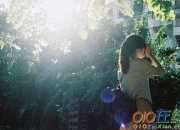英语写作自考试题答案
时间:2021-08-31要想用英语把文章写好,首先需要打下牢固的语言基础,即相当程度的语言造诣、良好的语言修养和敏锐的语言感知能力。下面是英语写作自考试题答案,欢迎参考阅读!
篇一:【自考英语答案】英语写作试题
请考生按规定用笔将所有试题的`答案写在答题纸上。全部题目用英文作答。
注意事项:
1.答题前,考生务必将自己的考试课程名称、姓名、准考证号用黑色字迹的签字笔或钢笔填写在答题纸规定的位置上。
2.用黑色字迹的签字笔或钢笔将答案写在答题纸上,不能答在试题上。
I. Supply the missing paragraph. (20 points)
The following passage is incomplete with one body paragraph missing. Study the passage carefully and write the missing paragraph in about 100 words.Make sure that your tone and diction are in unity with the passage provided.
The Positive Effects of Owning a Dog on Children
Dogs are the best friend of children. The dog and the child teach each other things and they look after each other. Owning a dog can have positive effects on a child’s development. Having a dog develops a child’s sense of responsibility, broadens his capacity for empathy, and teaches him the nature of friendship.
The first advantage of owning a dog is that it’s helpful to develop a child’s sense of responsibility. Once you own a dog, you have to take care of it instead of only playing it: showering, feeding, walking, cleaning up, hair cutting and so on. Dogs are animals that have to spend time together with people or they get depressed. So you must take some time to stay with it. If they are sick, one can’t just leave it alone. All of these works are required to be carefully done which could make a child become more responsible.
Another lesson that a child can learn from having a dog is how to be empathetic. A dog cannot express itself with speech, so its owner must learn to understand what the dog’s behavior means. Is the dog frightened, aggressive, or sick? The child needs to understand what is going on in the dog’s mind. The result of learning to read a dog’s behavior is that the child develops mpathy. By learning how to empathize with a dog, the child also learns how to empathize with other people. This leads to the child becoming a more considerate and caring person.
Being considerate and caring are important characteristics in a good friend.One of the most significant benefits of owning a dog is the example of true friendship that a dog provides. A dog gives unconditional love to its owner. A dog will not stop loving its owner because of a little anger, indifference, or neglect. A dog will wait patiently for its owner to pat its head and say a few kind words. This acceptance of the negative qualities and appreciation for the positive qualities of its owner provide a wonderful model of how to be a good friend. A child who has learned to be as good a friend to others as his dog is to him will have learned one of the most valuable lessons in life.
These are some of the most important lessons a child will ever learn. The benefits of owning a dog will last in the child’s entire lifetime. The understanding and appreciation of responsibility, empathy, and friendship that a child develops from the experience of having a dog will help him or her grow into a reliable, caring, and mature adult.
II. Write an outline. (20 points)
Read the following passage carefully and compose a “topic outline” for it.
Acting out Metaphors Encourages Creative Thinking
It happens in schools, offices, and boardrooms everywhere: someone working on a project hits a mental block. A boss or teacher might resort to a metaphor like “think outside the box” or “put two and two together,” encouraging a creative solution to the problem. As it turns out, this isn’t just abstract advice. According to an upcoming issue of Psychological Science, literally working outside of a box or putting two halves of something together just might help those creative juices start flowing again.
Since physical metaphors regarding creativity are so common and appearing in several different languages, a group of researchers hypothesized that they may extend beyond mere metaphors. Their study indicates that acting out metaphors literally can affect how our minds work.
In the first part of the study, the researchers asked 102 undergraduates to perform a Remote Associates Test (RAT), in which the subjects were given three seemingly
uelated words and asked to come up with a word that relates to each one. For example, the subject might be given “measure,” “worm,” and “video,”and the correct response would be “tape.”
The participants were divided into three groups; one group was asked to perform this task while sitting inside a 5’ by 5’ cardboard box, another group sat outside the same box, and those in the third group performed the task without a box in the room at all. None of the
participants knew the hypothesis behind the study; they were merely told it was an experiment on different working environments.
There was no difference in performance between those inside the box and those with no box at all. However, the participants that were seated outside the box did much better on the RAT than the other two groups. Apparently, something about literally “thinking outside the box” encourages creativity.
A second experiment looked at another well-known piece of advice: to “put two and two together” to come up with an answer. In the study, 64 subjects were divided into two groups. The first group had to perform a RAT while joining halves of cut paper cards from piles on each side of a desk. The second group performed a similar task, but only had to move card halves from one side of a desk to the other side. Those “putting two and two together” by uniting the two halves of the cards did far better on the RAT than those that were merely moving the cards from one pile to another.
So, acting out metaphors linked to creativity really can help us think creatively. In fact, it does more than let us access the knowledge we presently have; it encourages us to come up with new, unique and creative ideas. Next time you’re stuck on a problem, take a minute to ponder—or even act out—your favorite metaphor, and you might happen upon a great solution.
Topic Outline
Acting out Metaphors Encourages Creative Thinking
It happens everywhere: mental block. A boss or teacher might resort to a metaphor like “think outside the box” or “put two and two together”. This isn’t just abstract advice but might really help have creative thoughts.
A group of researchers hypothesized that acting out metaphors may extend beyond mere metaphors. They can affect how our minds work.
In the first study, the researchers asked 102 undergraduates to perform a Remote Associates Test (RAT). The subjects were given three uelated words and asked to answer a word that relates to each one.
The participants were divided into three groups; one group was asked to perform this task while sitting inside a cardboard box, another group sat outside the same box, and those in the third group performed the task without a box in the room.
There was no difference in performance between those inside the box and those with no box at all. However, the participants outside the box did much better on the RAT. Apparently, something about literally “thinking outside the box” encourages creativity.
The second experiment focused on another advice: to “put two and two together” to come up with an answer. In the study, 64 subjects were divided into two groups. The first group performed a RAT while joining halves of cut paper cards together. The second group performed a similar task, but only had to move card halves from one side of a desk to the other side. Those uniting the two halves of the cards did far better on the RAT than those that were merely moving the cards from one pile to another.
So, acting out metaphors linked to creativity really can help us think creatively.
IIl. Compose an essay. (60 points)
People are more and more concerned about the environment. Write a 300-word
expository essay stating your opinion about what we can do as individuals to improve our environment.
How to improve our environment
Nowadays, environment problems are are becoming more and more influential to our daily lives than only appearing in newspapers and TVs, lectures or reports. For instance, in the last winter, foggy days with the so called PM2.5 caused a panic among citizens. People were afraid of the polluted air and chose to stay at home instead of going out.
Protecting the environment is really an extremely urgent thing. As we all know, low carbon life was proposed in recent years and I think it would be a reasonable way to solve our environment crisis.
We can figure out what benefits can be gained when we transfer this conception into a real existence, a low carbon campus. This simple shift of perspective can actually transform what used to be quite far away into something that is just around us.
Take the use of electronic devices for example, when we choose to climb the stairs instead of using an elevator, when we prefer bicycles to cars, we are doing something fantastic for ourselves. Think about these activities as exercises that would not only keep us physically fit, but also spiritually energetic. If we turn off the computer when they are not in use, or even limit the hours we spend in front of them, we are not only saving the electricity, but also doing a favor to our body, preventing ourselves from too much exposure to radiation and other possible harms caused by computer. We can gain at the same tine a healthy and pain-free neck, and avoid sore muscles, worsening eyesight and so on. When we use natural wind, rather than fans or air conditioner to feel cool in summer, we are also reducing the possibilities of all the illness related to the electronic devices.
What we eat can also contribute to the establishment of a low carbon campus. More
vegetables and less meat mean that less carbon will be emitted in the process of producing and preparing for such foods. And this can also translate to a more balanced diet and healthier eating habits. Then many problems, such as overweight, tiredness or even high blood pressure and heart disease can be controlled to a certain extent when we get older. And this good eating habit actually benefits us for a life time, and what starts at campus goes a long way.
From the above analysis, we can get the basic idea that when we are doing something to reduce the carbon campus, but at the same time, we are make positive changes for oueselves.











